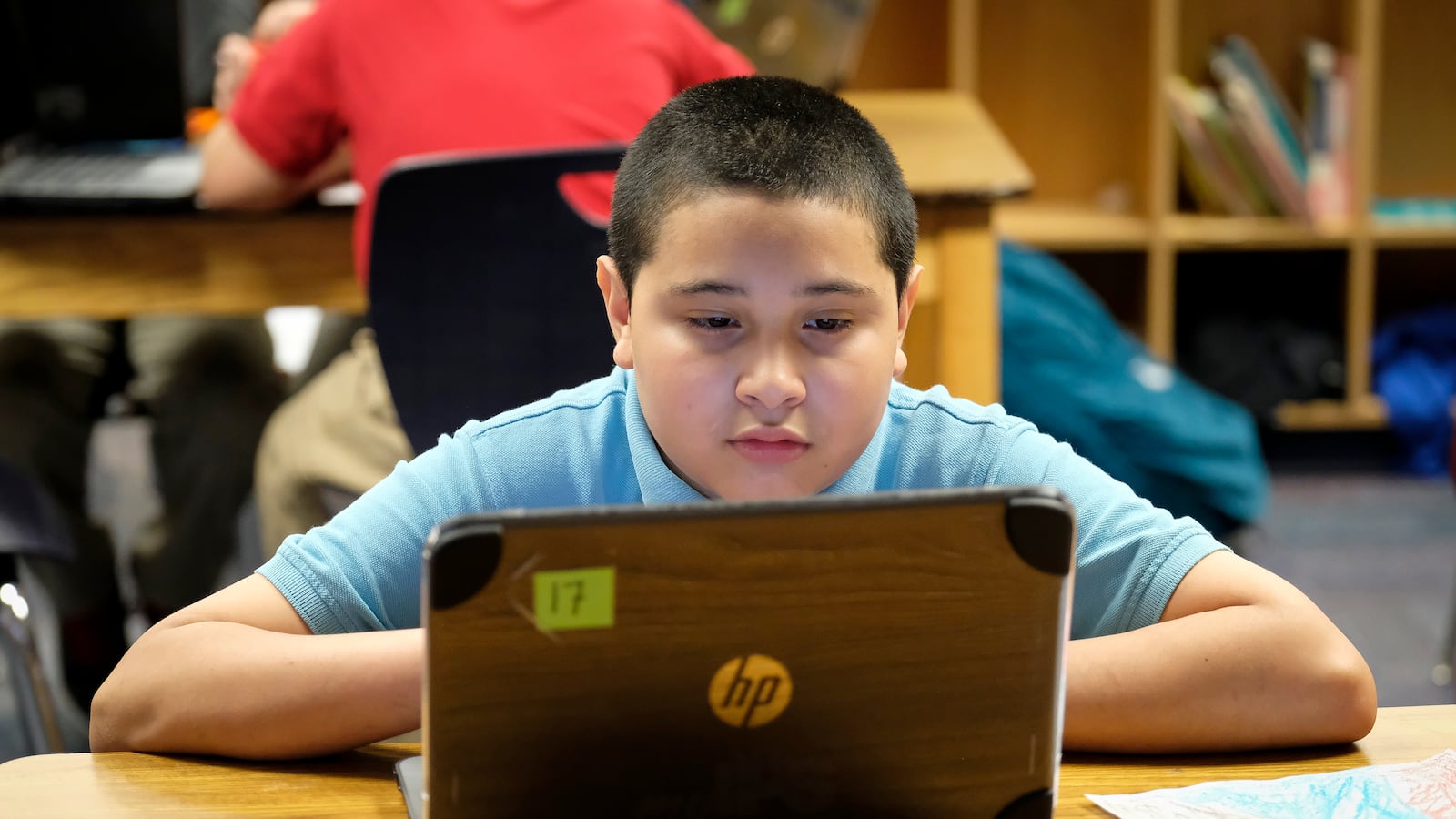The city of Indianapolis has created a $2.6 million e-learning fund to help schools improve distance education for students as all campuses remain closed because of the coronavirus.
The fund, which will be administered by Mayor Joe Hogsett’s Office of Education Innovation, will help low-income students in the city’s 11 districts and in charter schools get access to devices and the internet.
“While e-learning has meant that the education of our children can continue, we do know that not every household is equipped to participate in e-learning,” Hogsett said during the announcement Wednesday. “We must abide by our state’s constitutional mandate and provide access to education for all Marion County students.”
When Indianapolis Public Schools begins remote instruction Thursday, students in elementary and middle school will use paper packets. Only high school students will have online instruction. To make up for gaps in access, the district has mailed laptops to high schoolers who do not have them, and it has purchased about 1,500 mobile hotspots for families without access to the internet.
“Our team has spent hours upon hours, days upon days of thinking about this question around internet access for the communities that we serve,” said IPS Superintendent Aleesia Johnson, who is on the advisory committee for the fund.
The fund, supported by local philanthropic organizations, will also help schools create long-term plans for e-learning, including how to address students’ social and emotional needs. And it will create a lab offering online learning best practices and training for educators at public and private schools across the state.
“We have an obligation to help all Marion County students continue learning,” said Claire Fiddian-Green of the Richard M. Fairbanks Foundation, one of the groups behind the fund. “The majority of students, families, and educators were not prepared to shift almost overnight to extended periods of learning from home. This is new territory for almost all of us.”
City officials have not decided yet how much money will be distributed to Indianapolis schools, saying they first need to survey superintendents and assess their needs. An advisory board that includes three local superintendents will distribute the money.

